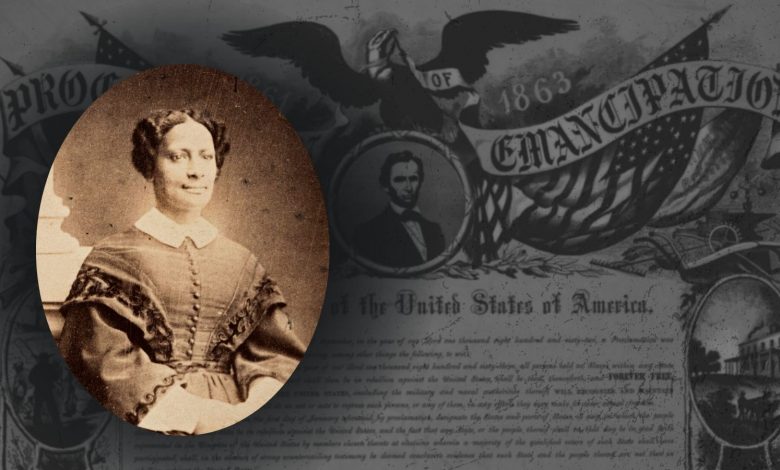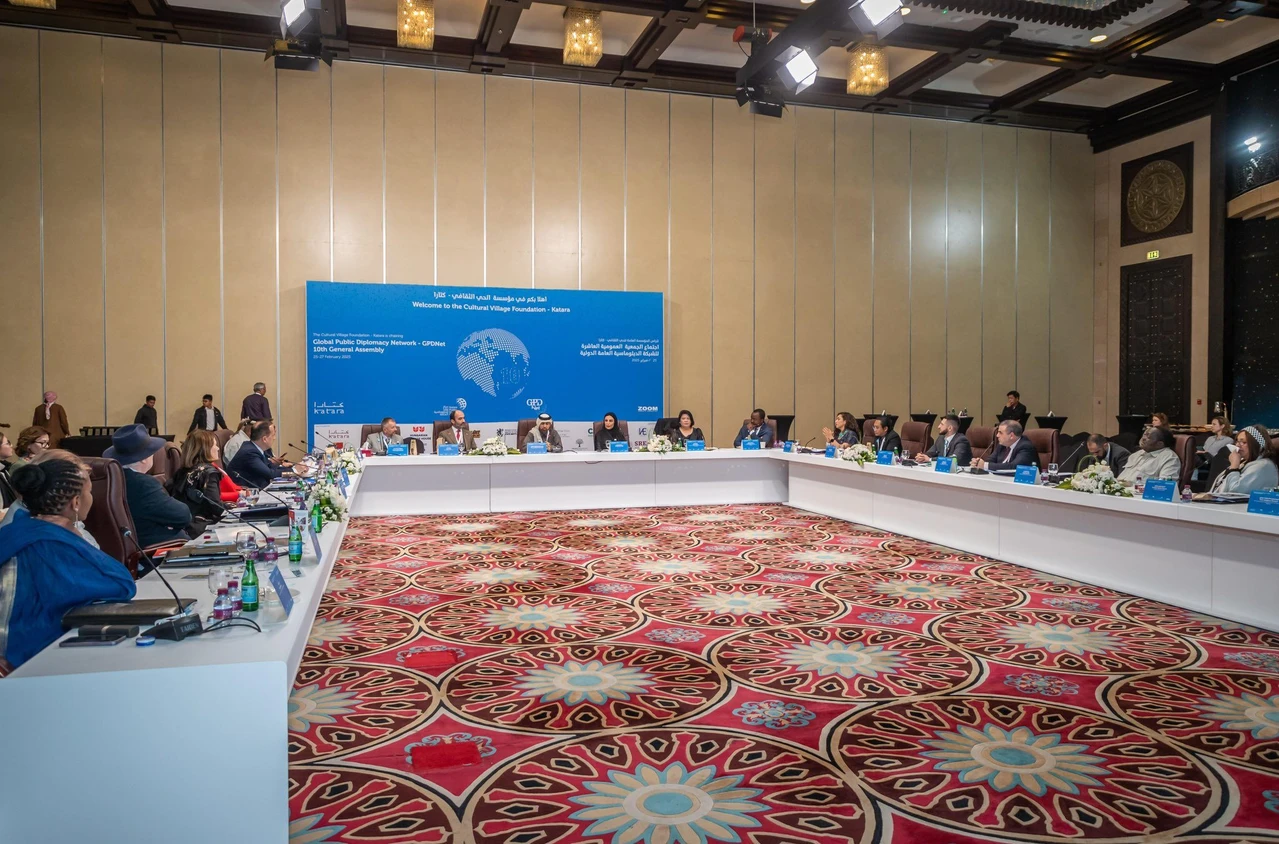Sarah Parker Remond: Citizen Diplomacy and the Emancipation Proclamation as Foreign Policy

When the Civil War broke out in April 1861, the official reason for war given by President Abraham Lincoln and Secretary of State William Seward was preservation of the State Union, not abolition of slavery.
In the end, emancipation actually became a war goal.
What has changed? How did the Emancipation Proclamation affect the European nations’ refusal to recognize the Confederacy as an independent nation?
And how did a black American citizen diplomat, Sarah Parker Remond, influence British textile workers to support the cause of abolition during the war?
US citizen diplomats travel the world demanding an end to slavery
Secretary of State William H. Seward (1801-1872) signed the Emancipation Proclamation with President Lincoln. Seward persuaded Lincoln to wait before issuing the proclamation until the United States had won a significant battlefield victory, and correctly predicted that European nations would need to be persuaded that the military could enforce emancipation. Lincoln agreed, noting, “The wisdom of Seward’s suggestion struck me with very great force as an aspect of the case that I had completely overlooked.” Photo courtesy of the Library of Congress.
The Lincoln administration was reluctant to link war aims to emancipation. Although the Republican Party had officially opposed the spread of slavery, and several members of Lincoln’s cabinet and the US Congress were active abolitionists, the threat of secession from the border states of Maryland, Missouri, Kentucky, and Tennessee remained. Even in the nation’s capital, Washington, DC, the institution of slavery was legal.
Secretary Seward, himself an abolitionist, feared that the struggle for emancipation would result in European nations recognizing the Confederate States of America.
However, American abolitionists had for several years spoken to foreign audiences about the horrors endured by the enslaved in the “slave states.”
As citizen diplomats, activist Americans did not speak for the United States government. But they encouraged their international audience to lobby their own governments to put pressure on the United States.
Her message resonated well – especially among people who worked in British textile mills, processing cotton produced by slave labor.
Sarah Parker Remond: Citizen Diplomat

Born in Salem, Massachusetts, Sarah Parker Remond (1826-1894) faced racial discrimination in her early years when black children were forced to attend segregated, substandard public schools. Remond rightly grew up believing that she had been denied an adequate public education and enrolled at a women’s college in London. After the war, Remond continued to advocate for racial and gender equality. In 1867, Remond moved to Italy, where she studied and practiced medicine for the rest of her life. Photo courtesy of the Peabody Essex Museum.
Sarah Parker Remond, a black abolitionist, spoke passionately to audiences across the UK about how they can campaign for abolition.
From 1858 Remond traveled through Ireland, Scotland and England. She directed her arguments largely at working-class women and girls. Remond appealed to their shared sense of femininity and motherhood. She was not afraid to speak openly about how enslaved women were subjected to sexual assault and how their children could be snatched away from them.

Women and girls made up a significant proportion of the workforce in UK textile mills. When Remond spoke to them, she empathized with their harsh working conditions but reminded them that their work was paid. Their children were not property to be bought and sold. Photo courtesy of Public Domain.
“If English women and wives knew the unspeakable horrors to which their sex was subjected on the southern plantation, they would rouse every western storm with the voice of their moral indignation, demanding for black women the protection and rights enjoyed by whites.” – Sarah Parker-Remond, 1859
Remond attracted thousands of spectators. In 1859 she suggested that the work of English textile workers was a symbol of support for American slavery.
“When I walk the streets of Manchester and meet load after load of cotton,” she told the factory workers, “I think of these 80,000 cotton plantations that grew $125 million worth of cotton that supply your market and I remember that not a penny of that money ever got into the hands of the workers.”

Sarah Parker Remond spoke frequently in Manchester, England at the Athenaeum in Lancashire County, Manchester. The city was known as “Cottonopolis” because of its economic dependence on cotton textile mills. Photo courtesy of Stephen Richards.
The Emancipation Declaration: New guide for diplomats on the ground
The impact of the advocacy of Remond and other American abolitionists was clear after Lincoln and Seward announced the text of the Emancipation Proclamation to the world.
The Battle of Antietam in September 1862 gave Lincoln the military victory the United States needed to demonstrate global might. This victory showed the world that it was feasible to tie emancipation to the war aims of preserving the state union.
Seward sent a cable to all US diplomats directing them to inform their foreign counterparts that “it is the Union, and not slavery, that must be upheld and preserved.” He also advised diplomats to remind foreign government officials that the United States would remember which nations were “most just” and that the US would not hesitate to take military action against those countries that wanted “servitude rather than liberty.” ‘ would choose.
Additionally, Lincoln and Seward had taken official action to demonstrate the clear demarcation between the Confederacy’s determination to protect and expand enslavement and the United States’ efforts to destroy it and expand citizenship for black Americans. Passports were issued to black citizens. The United States extended full diplomatic recognition of the Black Republics of Haiti and Liberia in 1862 and sent official US envoys. The government ended slavery in the District of Columbia through compensated emancipation for enslavers. Eventually, the United States negotiated the Seward-Lyons Agreement with Britain, which sanctioned mutual searches of suspected slaver ships sailing under the US and British flags.
US citizens thank British textile workers for their solidarity against slavery
In England, where Remond had spoken so passionately, cotton textile workers suffered extreme hardships.
The United States’ blockade of southern ports limited Britain’s ability to import raw cotton. By 1862, around the time of the Emancipation Proclamation, sixty percent of Lancashire’s factories were closed, leaving dozens of workers without pay. As the British government debated whether or not to recognize the Confederacy in the face of the severe financial losses caused by the “cotton famine”, the factory workers clung to the belief that they would not choose slavery over profit.

At a noisy assembly of workers at Manchester’s Free Trade Hall in 1862, the crowd enthusiastically agreed to support the cotton embargo. On the other hand, mill owners urged the British government to use the navy to break the blockade and bring cotton imports back to pre-war levels. Mill owners lost an estimated £30 million between 1862 and 1863, which is about £3 billion today. Photo courtesy of David Dixon.
As a result of their solidarity against enslavement in the Confederacy, workers in cotton textile mills became unemployed and faced starvation. In early February 1863, and with Lincoln’s approval, grateful citizens of New York and Philadelphia sent a relief shipment to the United States containing bacon, bread, rice, corn, and 15,000 barrels of flour George Griswold to 4,000 Liverpool citizens to thank them for their principled allies.

This is the last known barrel artifact from the support ship George Griswold. The inscription on the barrel reads: I am one of thousands filled with flour and sent from the Free States of America on the ship George Griswold to the starving people of Lancashire whose misery was caused by the slave owners’ war of aggression and civil war 1862- 1863 Photo courtesy of Touchstones Rochdale.
By 1863, after the Emancipation Proclamation went into effect, Confederate hopes of British recognition were dashed. American abolitionists like Sarah Parker Remond had paved the way for public opposition to an alliance with the existence of the Confederacy based on enslavement, and millworkers would not bow to the millowners’ demands either.
In addition, the United States Secretary of State for Britain, Charles Francis Adams, went on to tell the British government that any Confederate recognition, aid, or intervention would be seen as blocking the United States’ intention to abolish slavery forever. Due to political and public pressure, the British government continued to maintain its neutrality.



